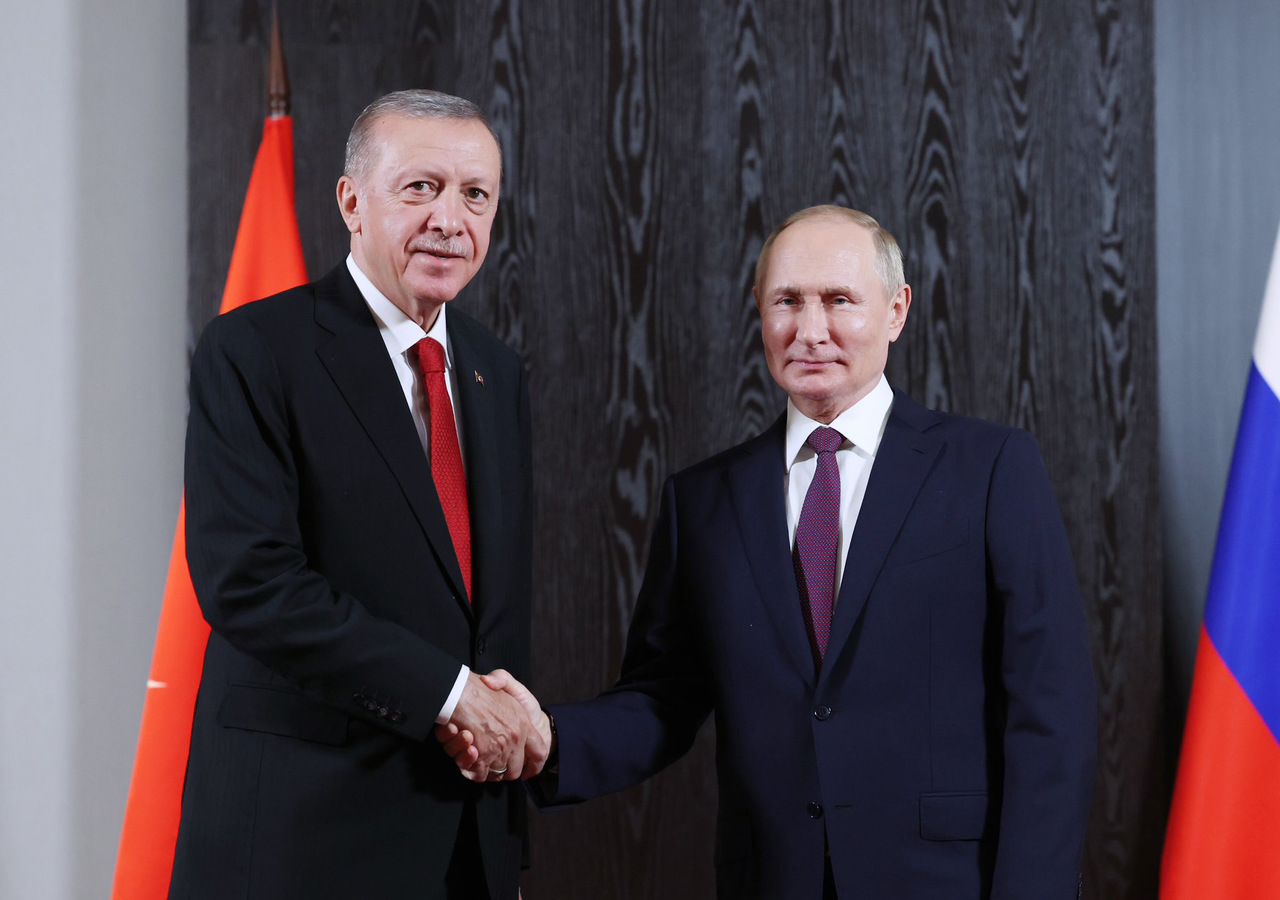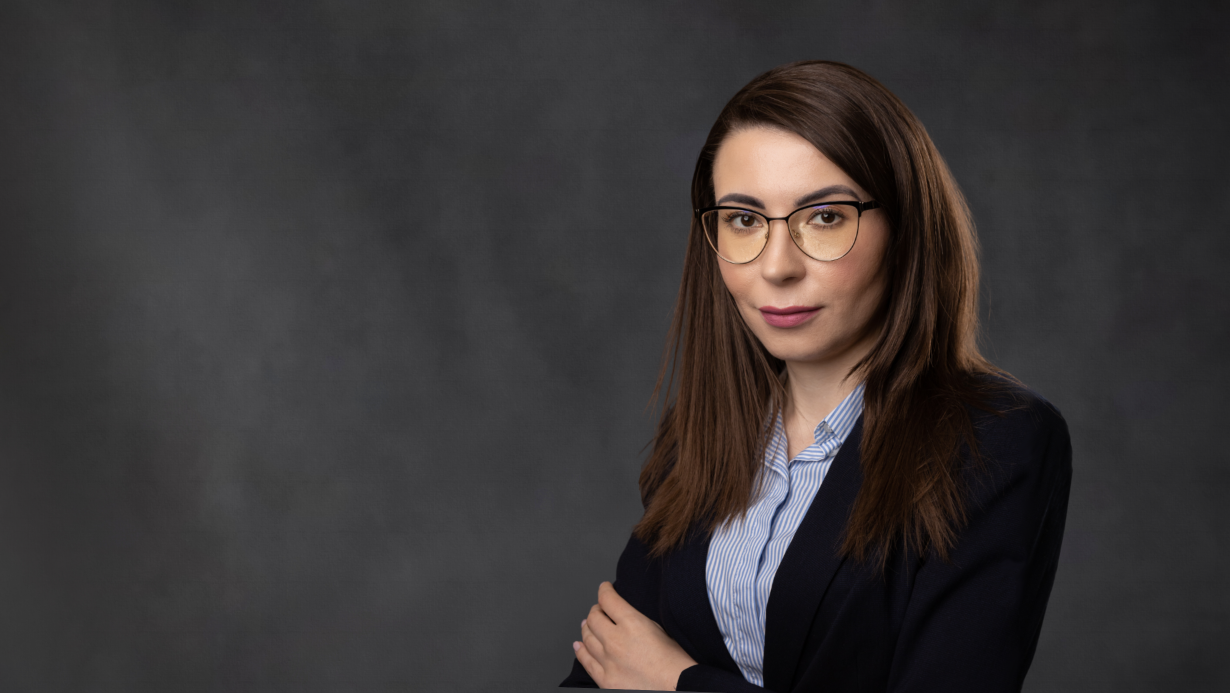Economy and Security are Keys to Türkiye-Russia Partnership
Since the beginning of the Russian full-scale invasion of Ukraine in February, Turkish President Recep Tayyip Erdoğan has been the only NATO leader to hold regular meetings with Russia’s Vladimir Putin. Türkiye has attempted to mediate between Russia and Ukraine, is a party to the grain agreement, and has acted as an intermediary in the exchange of prisoners of war. However, Türkiye’s failure to join the sanctions imposed on Russia in connection with the invasion of Ukraine weakens solidarity within the North Atlantic Alliance, but at the same time keeps open the possibility of exerting influence on Russia.
 Turkish Presidency / Zuma Press / Forum
Turkish Presidency / Zuma Press / Forum
Since the outbreak of the war in Ukraine, Türkiye has continued high-level contacts with Russia. Türkiye organised Russia-Ukraine negotiations in Istanbul in March. It is a party to the agreement on the unblocking of Ukrainian grain exports and acted as an intermediary in the exchange of prisoners. In addition, Erdoğan has met with Putin four times (on 19 July in Tehran, on 5 August in Sochi, on 16 September in Samarkand, and on 13 October in Astana) to discuss intensifying bilateral economic and energy cooperation and the situation in the northeastern part of Syria. However, the intensity of contacts does not mean a convergence of positions on the most important issues or the depth of relations. They are characterised by a transactional approach and are largely based on the personal diplomacy of the leaders.
Türkiye’s Goals
Tightening relations with Russia is in line with the belief of Turkish decision-makers that the West-centric international order is in decline and by a vision of a multi-dimensional foreign policy strategy. As part of it, Türkiye seeks to expand its ability to act on the international forum, not wanting to rely solely on the West. In the face of the crisis in the Turkish economy, the goal is to achieve economic benefits in relations with Russia, which may be decisive for Erdoğan’s political survival in the perspective of next year’s parliamentary and presidential elections. Another factor that plays a role in rapprochement with Russia is ideological considerations, such as Eurasian concepts. They are presented by some officials popularising the concept of the “Blue Homeland” (tr. Mavi Vatan), which is the belief that the future of Türkiye lies in the region of Eurasia. In addition, strong pro-Russian views are present among some small but influential political groups such as the Homeland Party (VP), led by Doğu Perinçek, and businesspeople such as Ethem Sancak, a former member of the ruling Justice and Development Party (AKP), known for his close relationship with Erdoğan.
Economy
Türkiye maintains close economic ties with Russia. According to the data of the Ministry of Commerce and the Turkish Statistical Institute, from May to July this year, Turkish exports to Russia were worth $2.04 billion, $642 million more than in the same period last year. In 2020, Russia satisfied over 33.6% of Türkiye’s gas demand, and in October this year Putin announced that he wants to make Türkiye the largest distribution centre for Russian gas. In addition, maintaining close relations with Russia is necessary as the Russians are building the Akkuyu power plant in southern Türkiye—in July this year, Rosatom transferred $5 billion to its subsidiary Akkuyu Nükleer for the construction, declaring another $15 billion available; the project has received financing from the largest Russian banks, Sberbank and Sovkombank, which are subject to Western sanctions). Turkish Minister of Treasury and Finance Nureddin Nebati, referring to concerns expressed by Western states and the leading Turkish business association TÜSİAD, reassures that Türkiye’s economic relations with Russia are “legal”. However, it is likely that the authorities are not disclosing some of the financial flows from Russia. In particular, the net inflows, classified by the Turkish Central Bank as “net errors and omissions”, raise doubts. The money, the origin of which is unclear, reached the level of over $20 billion in the first eight months of this year, which may indicate the involvement of the Turkish side in circumventing the sanctions by Russian entities. Another factor motivating Türkiye to maintain close relations with Russia is the construction sector. Russia is the main foreign market for Turkish construction companies, with a 19.6% share in 2018. This percentage may increase further as Western companies withdraw from the Russian market. Russia is also important for the Turkish tourism sector. Russians were the second-largest group of foreign visitors to Türkiye this year at more than 3 million people. In addition, Russians can obtain citizenship by buying real estate in Türkiye worth at least $500,000. After Erdoğan’s meeting with Putin in Sochi in August, the number of Turkish banks operating the Mir payment system, intended as an alternative to Visa and Mastercard, increased. However, under pressure from the U.S. Treasury Department, Turkish banks Ziraat Bankası, Halkbank, Vakıfbank, İşbank, and Denizbank decided to quit the Russian payment system. Currently, the central banks of Russia and Türkiye are discussing the possibility of using the Turkish Troy payment system as an alternative to the Mir system.
Security
Türkiye cooperates with Russia on the security front. Although the states take opposing positions in the conflict in Libya and in the South Caucasus, Erdoğan and Putin have proven that they can form tactical alliances and divide their influence in Syria. For example, Türkiye and Russia conduct joint military patrols there on the M4 highway that crosses the province of Idlib. Türkiye, which condemned the Russian invasion of Ukraine, implemented the provisions of the Montreux Convention, which regulates the rules for the passage of warships through the Black Sea straits, and provides Ukrainian forces with unmanned aerial vehicles, which clearly irritates Russia. Nevertheless, it tries to maintain a policy of “balancing” with respect to the conflict. This attitude, although backed by the Turkish public (according to surveys conducted in March this year, more than 70% of citizens believe that Türkiye should remain impartial in the conflict between Russia and Ukraine), it is perceived as harmful by the West. In a report from October this year, the European Commission (EC) emphasised that the Turkish government’s foreign policy collides with the priorities of the Community’s foreign and security policy (CFSP). In the opinion of the Commission, Türkiye’s non-participation in the EU sanctions against Russia poses a risk of weakening them. The document presented by the EC was criticised by the Turkish Ministry of Foreign Affairs, which indicated that Türkiye is not obliged to participate in the sanctions imposed by the EU. At the same time, the ministry stressed that it will consider EU demands only if it treats Türkiye as a subject to and fulfils its obligations resulting from its status as a candidate country for membership in the EU.
Conclusions and Perspectives
Turkish elites believe that Türkiye and Russia share an advocacy of a multicentric international order, understood as a correction of the current international order dominated by the West. The further development of Turkish-Russian relations will depend on next year’s parliamentary and presidential elections in Türkiye. A major change in Türkiye’s policy towards Russia should not be expected after next year’s elections either because even the opposition has declared that it will continue these relations. The changes, if they occur, may concern the nationalisation of the Akkuyu power plant and reducing energy dependence on Russia. The Russian plans to increase Türkiye’s role as an intermediary in gas transit to Europe are unlikely to succeed given the Western countries’ desire to become independent of Russian gas and to develop alternative sources of imports. Türkiye’s failure to join the EU sanctions imposed on Russia in connection with the full-scale invasion of Ukraine weakens solidarity within NATO and strengthens Russia’s position. In addition, it consolidates the perception of Türkiye in the West as an adversary and will influence postponing the EU’s decision to modernise the customs union with Türkiye. Poland may try to use good relations with Türkiye to persuade Erdoğan to act in favour of his allies and use his personal contacts with Putin to influence Russia to end its aggression against Ukraine.



